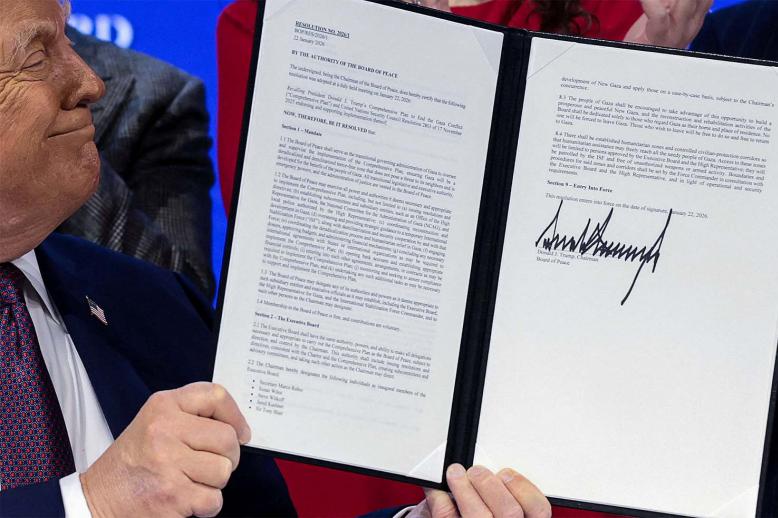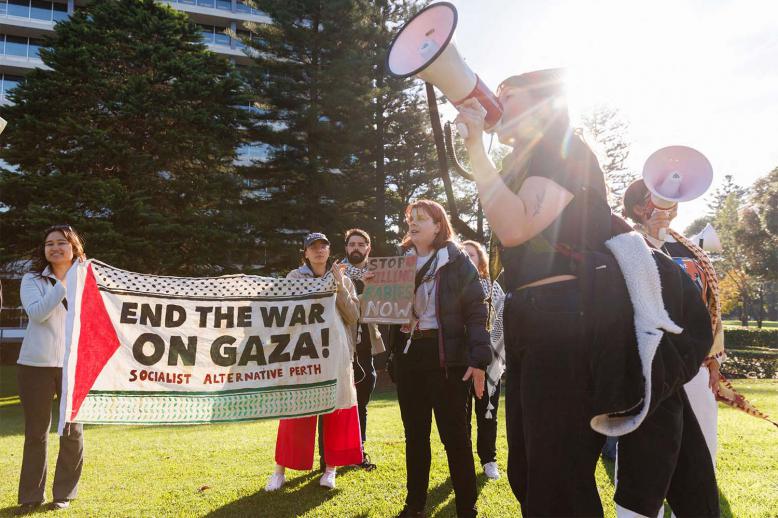Lebanon’s divisions prolong suffering of Syrian refugees
Beirutis is heading home past midnight after an evening out may face begging Syrian children as young as 6. A “service” — shared taxi — driver from Homs doesn’t know the way to Cola, the city’s busiest interchange.
Anecdotes abound but as a professor of Demography at the Lebanese University, Hala Naufal craves the reliable statistics Lebanon lacks. She draws tentative quantitative and qualitative conclusions from research as an adviser to the Lebanese Family Planning Association and in fieldwork with the UN Population Fund, which deals with sexual and reproductive health.
“Before 2011, there were 600,000-700,000 Syrians working in Lebanon,” Naufal said. “With the crisis, they brought their families. UNHCR [UN High Commission for Refugees] has less than 1 million registered; the government estimates 1.5 million. I believe there are more than 2 million. They are spread all over the country, in every locality.”
Lebanon’s infrastructure, especially electricity and water, is creaking. In the longer term, the migration of so many from the Syrian hinterland to the wealthier Lebanese coast could transform the country, especially as young Lebanese emigrate.
Demographic changes widespread in much of the third world have been accelerated by conflict and complicated by politics. Beirut has a growing chasm between rich and poor as the better-off increasingly live in high-rises, above air pollution, behind security doors.
Naufal said the Syrians could be an asset for Lebanon “with a strategy for assimilation and adequate regulations.” However, an explosive cocktail has instead been created by the Lebanese government’s haphazard response to the Syrian war and by Lebanon’s political divisions.
As more Lebanese express hostility to Syrians — they feel have depressed wages and driven up rents — the Free Patriotic Movement (FPM), the Christian party allied with Hezbollah, echoes their sentiments. Its leader, Lebanese Foreign Minister Gebran Bassil, recently said Lebanon will have “no government” if the refugees stay.
Lebanese President Michel Aoun, FPM founder, claims 167,000 refugees have returned. The General Security in December estimated 100,000. UNRWA has verified 16,000 returnees. An UNRWA poll stated that, while 83% said they want to go home, only 5% plan to do so in the next year.
Much of Syria lies in ruins. The Syrian Network for Human Rights last year estimated 3 million homes were destroyed. While Syrian President Bashar Assad’s government puts reconstruction costs at $400 billion, the European Union and the Arab Gulf countries see political reform as a precondition for assistance.
Some Syrian refugees have opened businesses and are doing well in Lebanon: Damascus-style fatteh can be savoured on the Beirut corniche while Syrian flower-sellers enjoy a brisk springtime trade. But even those in tents in the Bekaa need an incentive to move.
“Many children and babies died in the cold winter but these people lack choices,” Naufal said. “There’s no job and perhaps no home to go back to. Here in Lebanon, NGOs offer health and other services, including for the non-registered. In Syria, this isn’t the case.”
Security is another issue. The German and French ambassadors, Georg Birgelen and Bruno Foucher, argued in a recent article that “the main barrier [to return] is the climate of fear and injustice in Syria… [with] detention by the Syrian security agencies… so arbitrary that no refugee can ultimately be sure of a safe return.” They demanded Damascus allow UNHCR to “freely move within Syria to access and protect all refugees.”
The consequences of so many Syrian refugees settling in Lebanon are unknown. In the 1980s, thousands of Shia Lebanese fled the Israeli invasion of southern Lebanon. Their arrival in Beirut’s swelling southern suburbs and their squatting in areas such as Zuqaq al-Blat near downtown Beirut have demographic and political consequences, including the rise of Hezbollah.
Syrian refugees, Naufal points out, are overwhelmingly Sunni, a sensitive factor in Lebanon’s precarious sectarian balance even though as non-nationals the Syrians lack voting and other rights. They are also, she adds, disproportionately young. Disenchanted youth living in informal housing and in black market work can be fertile ground for extremists.
Mustaqbal, the Lebanese Sunni party led by Lebanese Prime Minister Saad Hariri, argues the refugees’ return requires change in Syria. Ironically the FPM and Hezbollah, insistent on the refugees’ departure, are allied with Assad. The resulting impasse may have consequences that change the face of Lebanon.
Assad bides his time. “The regime is using the refugees as leverage both on Lebanon and on the international community to normalise relations with Damascus,” said Michael Young, senior editor at the Carnegie Middle East Centre in Beirut. “So we’re in a stalemate… but pressure will build to begin to forcefully repatriate refugees. The international community will rightfully condemn this but many Lebanese, I fear, will support such a decision.”
“The problem is political,” Naufal said. “Five years from now, you may find the situation is the same. Ninety per cent of the Syrian refugees oppose the [Assad] regime and they can’t return because they don’t feel secure.”
Gareth Smyth has covered Middle Eastern affairs for 20 years and was chief correspondent for The Financial Times in Iran.
This article was originally published in The Arab Weekly.







